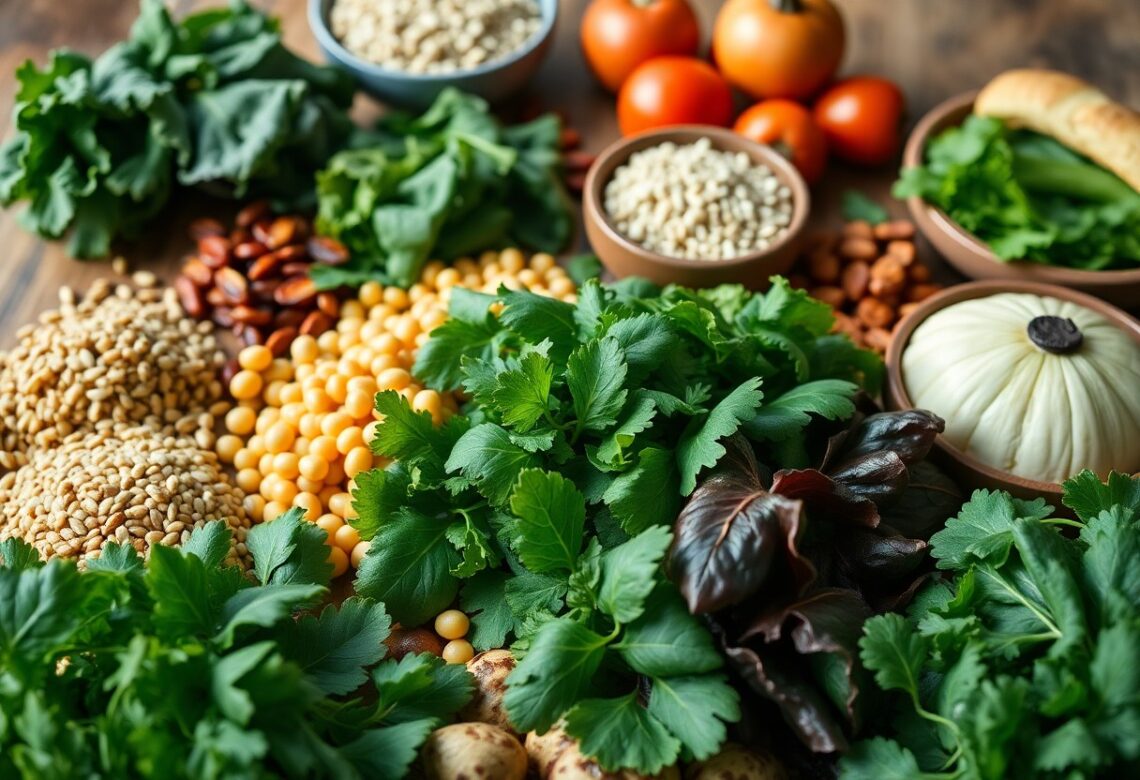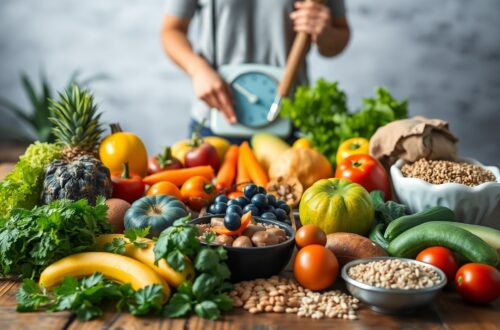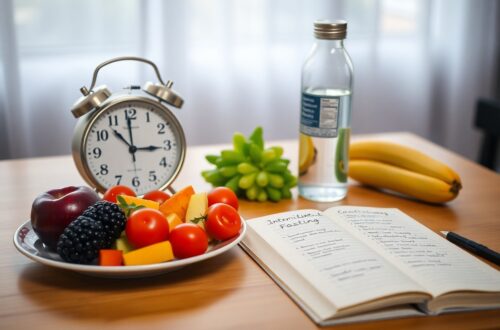There’s a growing interest in vegan diets, especially for weight loss. If you’re considering this lifestyle, it’s important to focus on the necessary nutrients that will keep you healthy while shedding pounds. A balanced vegan diet can provide all the nutrients your body needs, but knowing which ones to prioritize is key. In this post, you’ll learn about the vital nutrients to include in your vegan weight loss plan to ensure you stay energized and satisfied.
Key Takeaways:
- Include a variety of plant-based proteins such as beans, lentils, and quinoa to help build muscle and keep you full.
- Incorporate healthy fats from sources like avocados, nuts, and seeds to support overall health and improve satiety.
- Don’t forget to eat plenty of fruits and vegetables to ensure you’re getting necessary vitamins, minerals, and fiber for a balanced diet.
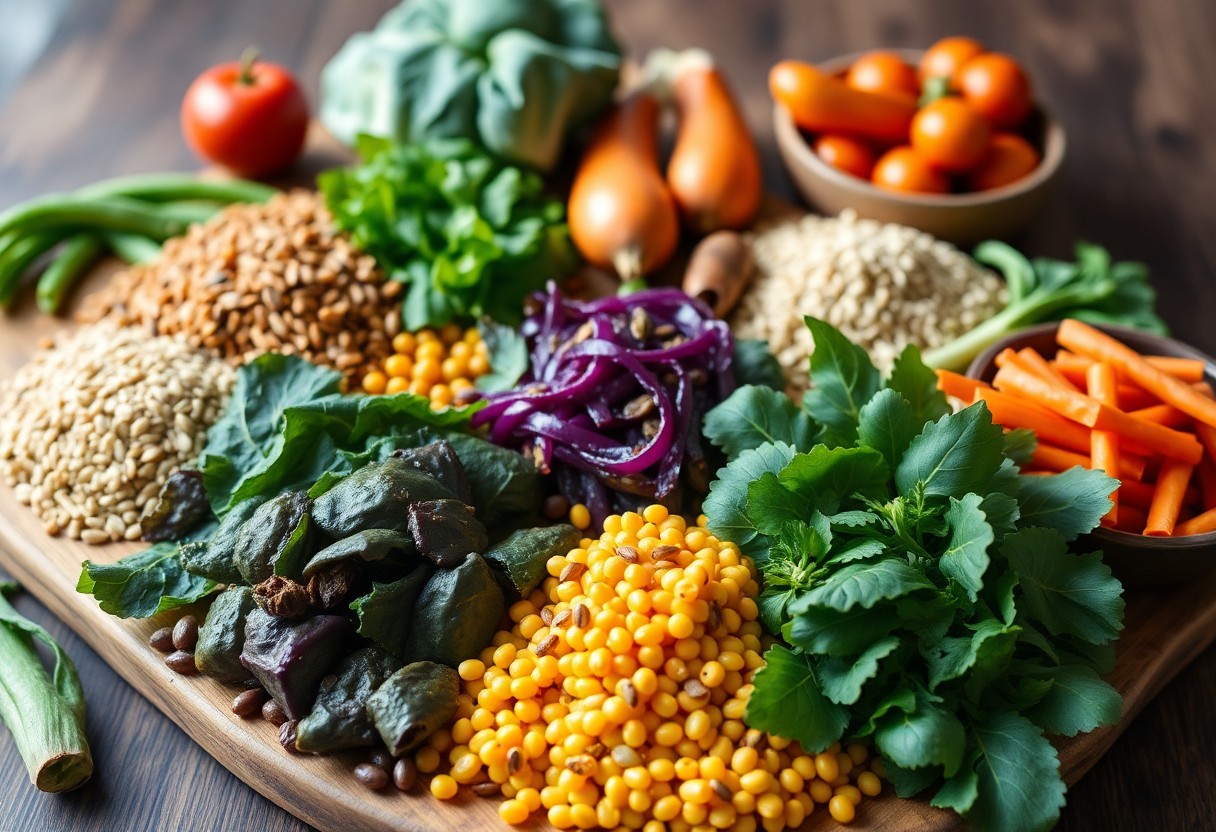
Understanding Vegan Nutrition
Before starting a vegan diet, it’s necessary to understand the basics of vegan nutrition. A vegan diet emphasizes plant-based foods and excludes all animal products. This dietary choice can offer many health benefits, but it also requires careful planning to ensure you get all the nutrients your body needs, especially if you are aiming for weight loss.
What is a Vegan Diet?
At its core, a vegan diet consists entirely of foods derived from plants. This includes fruits, vegetables, grains, nuts, and seeds. By eliminating meat, dairy, and eggs, you’re choosing a lifestyle that aligns with ethical considerations, health goals, or environmental concerns. Understanding your food choices helps you make better decisions for your weight loss plan.
Common Nutritional Deficiencies
Diet can present certain nutritional challenges for vegans, leading to common deficiencies. When you avoid animal products, you may lack important nutrients like vitamin B12, iron, calcium, and omega-3 fatty acids. It’s important to identify these potential gaps to ensure your vegan weight loss plan remains balanced and healthy.
For instance, vitamin B12 is mainly found in animal products. If you’re not supplementing, you might not get enough, which could lead to fatigue and nerve issues. Additionally, iron in plant sources is less absorbable than in meat. You may need to consume more plant-based iron sources, like lentils and spinach, along with vitamin C to enhance absorption. Ensuring you have all these nutrients is vital for your overall health and successful weight loss on a vegan plan.
Key Nutrients for Weight Loss
Now, focusing on the right nutrients can make your vegan weight loss journey more effective. By including the right key nutrients in your meals, you can boost your metabolism, reduce hunger, and support overall health. These vital nutrients include protein, fiber, healthy fats, and vitamins. Let’s investigate into how each of these can help you achieve your weight loss goals.
Protein
After all, protein is vital for building and repairing tissues, and it also plays a major role in weight loss. When you consume enough protein, it helps you stay full longer. This can prevent unnecessary snacking and reduce your overall calorie intake. Good vegan sources of protein include lentils, beans, chickpeas, and tofu.
Fiber
One effective nutrient for weight loss is fiber. Incorporating sufficient fiber into your diet can help you feel full and satisfied. This reduces the chances of overeating and helps with digestion. Foods like fruits, vegetables, whole grains, and legumes are excellent sources of fiber that you should include in your meals.
Nutrients high in fiber can also support healthy digestion and promote a balanced gut. They slow down the digestion process, which can help you maintain stable energy levels throughout the day. Aim for about 25 grams of fiber daily to enjoy its full benefits. Adding beans to salads, snacking on fruits, or choosing whole grain over white bread can make a big difference in your fiber intake.
Vitamins and Minerals to Include
All vegan weight loss plans should focus on crucial vitamins and minerals to support overall health. These nutrients play key roles in energy production, metabolism, and immune function. Including a variety of fruits, vegetables, nuts, and seeds in your diet can help you meet your nutritional needs. Make sure to watch out for potential deficiencies and consider fortified foods or supplements when necessary to stay on track with your goals.
Vitamin B12
On a vegan diet, obtaining enough Vitamin B12 is crucial for maintaining energy levels and healthy nerve function. This vitamin is primarily found in animal products, so you need to look for fortified plant-based sources, like some plant milks and cereals. If you find it hard to get enough through food alone, consider taking a B12 supplement to ensure you meet your daily requirement.
Iron
Below are some key sources of iron that fit well into a vegan weight loss plan. Plant-based options include lentils, chickpeas, tofu, quinoa, and dark leafy greens like spinach. Combining these foods with Vitamin C-rich items, such as citrus fruits or bell peppers, can enhance iron absorption. Keeping an eye on your iron intake helps with energy levels and muscle recovery, especially important if you are exercising regularly.
In fact, iron plays a vital role in transporting oxygen throughout your body, which affects your energy and overall performance. Without enough iron, you may feel fatigued or sluggish. It’s important that you include iron-rich vegan foods daily and pair them with Vitamin C to boost absorption. Consider tracking your meals to ensure you meet your iron needs and consult with a nutritionist if you are unsure.
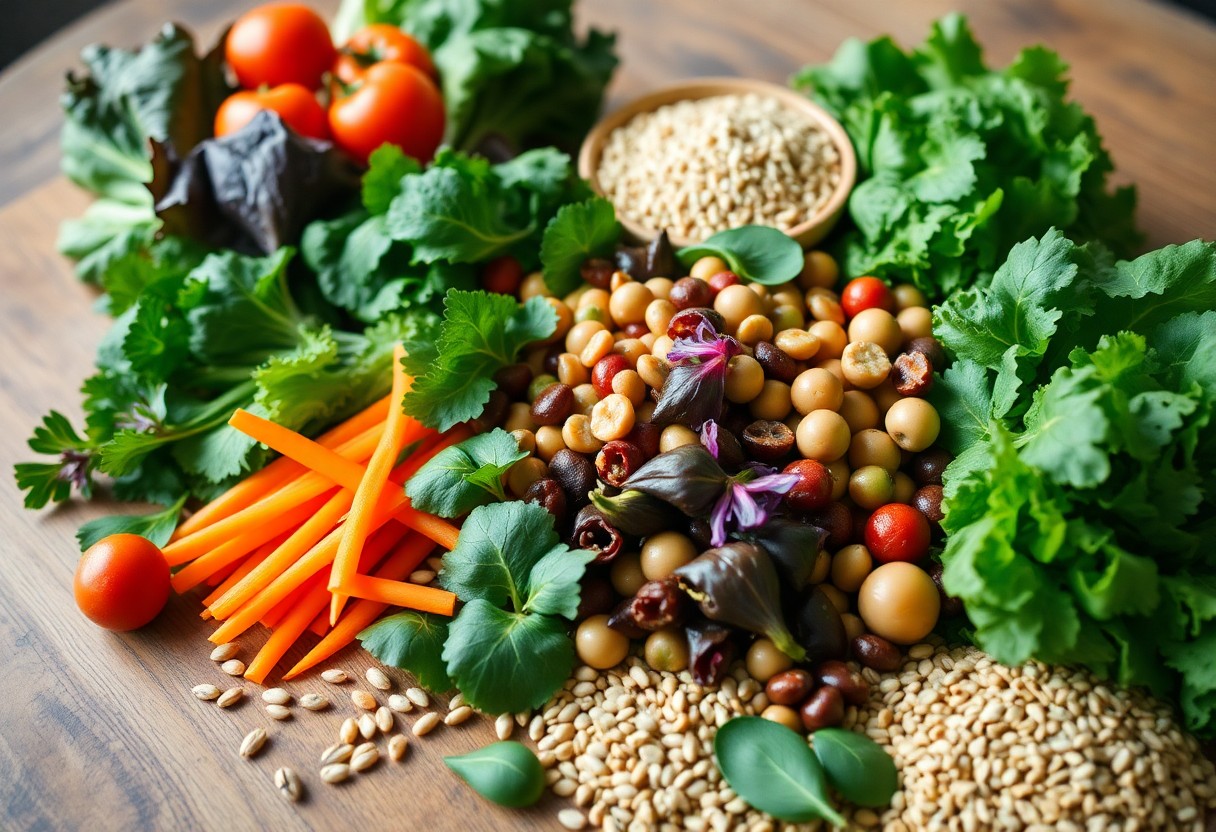
Healthy Fats for Energy
To maintain energy levels on a vegan weight loss plan, incorporating healthy fats is crucial. Healthy fats can provide a steady source of energy, support cell function, and help you feel satisfied after meals. They also play a key role in nutrient absorption, allowing your body to fully benefit from the vitamins and minerals in your food. By including the right kinds of fats, you can promote a healthy lifestyle and support your weight loss goals.
Sources of Healthy Fats
Below are some great sources of healthy fats you can include in your diet. Avocados, nuts, seeds, and olive oil are excellent options. Chia seeds and flaxseeds are also rich in omega-3 fatty acids. These foods add flavor and nutrition to your meals while providing the necessary fats your body needs.
Benefits of Omega-3 Fatty Acids
On a vegan weight loss plan, omega-3 fatty acids offer numerous benefits. They support heart health, reduce inflammation, and may even boost your mood. Including sources of omega-3s in your diet can help improve your overall well-being and may aid in weight management.
Energy levels can benefit from omega-3 fatty acids as they help improve blood circulation and reduce chronic inflammation. They also support brain function, which can enhance your focus during workouts and daily activities. Incorporating sources of omega-3s like flaxseeds and walnuts into your meals can make your vegan weight loss plan more effective.
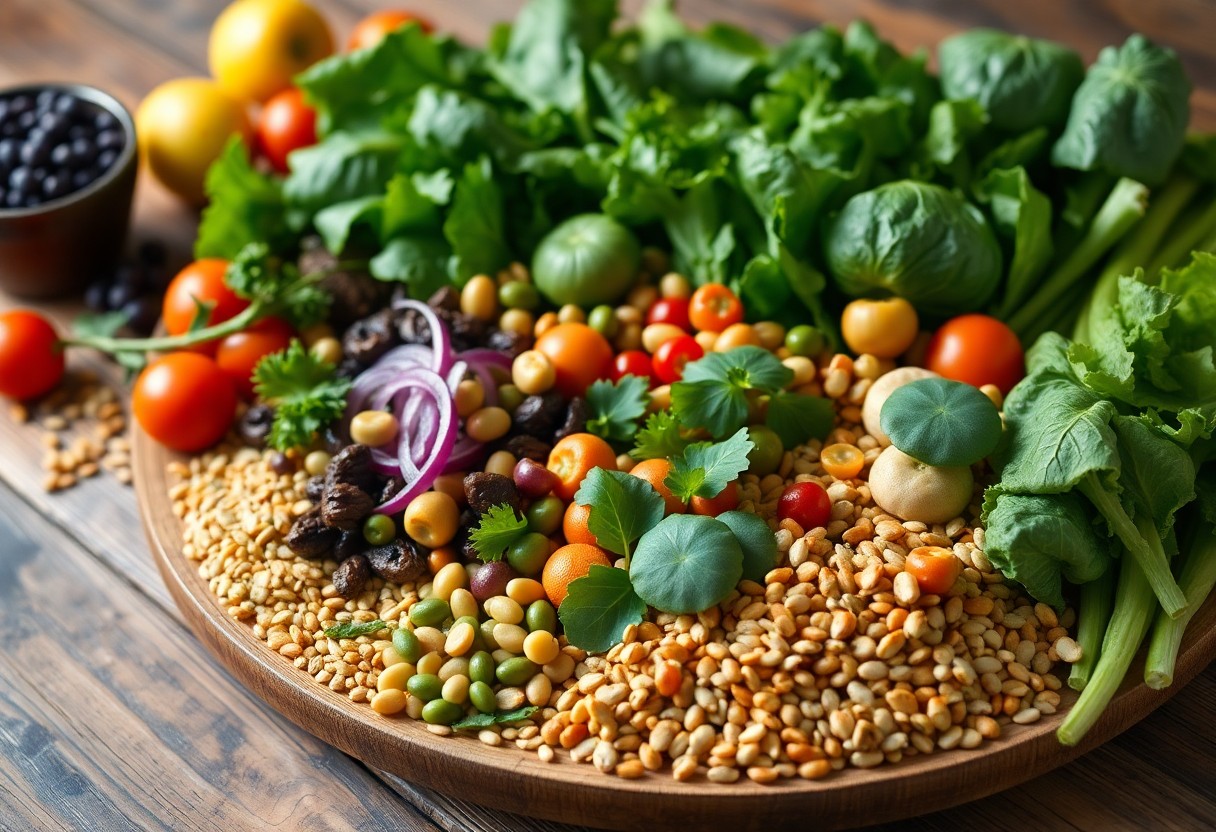
Carbohydrates: Choosing the Right Types
Unlike popular belief, not all carbohydrates are the same. To support your vegan weight loss plan, focus on whole, unprocessed carbs instead of refined ones. These can help you feel full and provide vital energy. Here are some types to consider:
- Whole grains
- Legumes
- Fruits
- Vegetables
- Nuts and seeds
The 7 Supplements You Need on a Vegan Diet can also enhance your nutrient intake.
| Type | Benefits |
|---|---|
| Whole Grains | High in fiber, aids digestion |
| Legumes | Rich in protein, low in fat |
| Fruits | Loaded with vitamins, antioxidants |
| Vegetables | Low in calories, full of nutrients |
| Nuts and Seeds | Healthy fats, keeps you satisfied |
Whole Grains
Carbohydrates from whole grains provide fiber and vital nutrients. Incorporate foods like brown rice, quinoa, and oats into your meals. These grains help stabilize your blood sugar and keep you energized. They also aid in digestion and promote a feeling of fullness, which is great for weight management.
Fruits and Vegetables
Behind every successful weight loss journey is a diet rich in fruits and vegetables. These foods are low in calories but high in nutrients. They add color, flavor, and variety to your meals while helping to keep you satisfied.
Hence, choosing a colorful mix of fruits and vegetables can also enhance your overall health. Aim for a variety of colors to ensure a broad spectrum of vitamins and minerals. Leafy greens, berries, and oranges are excellent choices. This combination supports weight loss while giving your body the nutrients it needs.
Key Takeaways:
- Focus on whole, unprocessed carbohydrates.
- Incorporate a range of fruits and vegetables into your diet.
- Consider adding supplements to enhance your nutrient intake.
Creating a Balanced Meal Plan
Despite the challenges of vegan diets, creating a balanced meal plan can help you achieve your weight loss goals. Focus on incorporating a variety of foods that provide crucial nutrients. Aim for a mix of fruits, vegetables, whole grains, and plant-based proteins. This diversity ensures you get the vitamins and minerals your body needs. Keep your meals colorful and satisfying to stay motivated throughout your journey.
Sample Meal Ideas
Along with planning your meals, consider trying these sample ideas. They can offer delicious ways to meet your nutritional needs:
- Breakfast: Oatmeal topped with berries and flaxseeds.
- Lunch: Quinoa salad with black beans, corn, and avocado.
- Dinner: Stir-fried tofu with mixed vegetables and brown rice.
- Snack: Hummus with carrot and cucumber sticks.
Portion Control Tips
With portion control, you can enjoy your meals while managing your calorie intake. Pay attention to serving sizes, and use smaller plates to help regulate portions. This approach makes it easier to avoid overeating:
- Measure your food to understand proper serving sizes.
- Fill half your plate with vegetables to keep calories low.
- Be mindful when eating; chew slowly and savor each bite.
- Store leftovers in proper portions for future meals.
At the end of your meals, assess how you feel. If you’re still hungry, consider adding more vegetables or a healthy snack. Use these tips to create satisfying meals without going overboard:
- Keep healthy snacks on hand to curb hunger between meals.
- Avoid eating straight from the package; portion out servings first.
- Listen to your body’s hunger cues and eat accordingly.
- Plan your meals in advance to avoid impulse eating.
Summing Up
The vital nutrients to focus on in your vegan weight loss plan include protein, iron, calcium, omega-3 fatty acids, and vitamins B12 and D. By including a variety of plant-based foods, you can meet your nutritional needs while shedding pounds. Incorporate legumes, whole grains, nuts, seeds, and leafy greens into your meals to stay healthy and energized. Keep track of your intake to ensure you get these nutrients regularly. By doing this, you pave the way for a successful and sustainable weight loss journey.
Essential Nutrients to Focus on in a Vegan Weight Loss Plan: FAQ
Q: What are the main nutrients I need to focus on in a vegan weight loss plan?
A: When following a vegan weight loss plan, it’s important to focus on several key nutrients. These include:
- Protein: Important for muscle health. Sources include beans, lentils, tofu, and quinoa.
- Fiber: Helps you feel full. You can find fiber in fruits, vegetables, whole grains, and legumes.
- Healthy Fats: Necessary for brain health. Avocados, nuts, and seeds are great options.
- Vitamins and Minerals: Key for overall health. Pay attention to B12, iron, calcium, and vitamin D.
Q: How can I get enough protein on a vegan diet?
A: There are many plant-based protein sources to include in your meals. Here are a few options:
- Legumes like chickpeas and black beans
- Tofu and tempeh
- Edamame
- Quinoa, which is a complete protein
- Nuts and seeds, such as hemp seeds and almonds
Try to add a variety of these foods to your meals for the best results.
Q: How do I ensure I get enough iron on a vegan diet?
A: Iron is important for blood health. You can get iron from plant sources such as:
- Spinach and other leafy greens
- Lentils and beans
- Fortified cereals
- Tofu and pumpkin seeds
Pair these foods with vitamin C sources, like oranges or bell peppers, to help your body absorb the iron better.
Q: What should I know about vitamin B12 on a vegan diet?
A: Vitamin B12 is not found in most plant foods, which makes it important for vegans to pay attention to it. You can get B12 from:
- Fortified plant milks
- Fortified nutritional yeast
- B12 supplements, which are often recommended
Check with a healthcare provider to see if you need to take a supplement.
Q: Are there any specific foods that can help with weight loss while following a vegan diet?
A: Yes, certain foods can help you lose weight effectively. Consider adding these to your meals:
- Leafy greens like kale and spinach
- Fruits, especially berries and apples
- Vegetables like cucumbers and bell peppers
- Whole grains like brown rice and oats
- Legumes such as lentils, which are filling
These foods are low in calories but high in important nutrients, making them great for weight loss.
Key Takeaways
- Focus on protein, fiber, healthy fats, and vitamins while on a vegan weight loss plan.
- Include a variety of plant-based foods to meet your nutritional needs.
- Monitor your intake of iron and vitamin B12 carefully.
- Incorporate specific low-calorie foods to help with weight loss.
By paying attention to these important nutrients, you can create a balanced and effective vegan weight loss plan. Stay informed and enjoy your journey towards better health!
